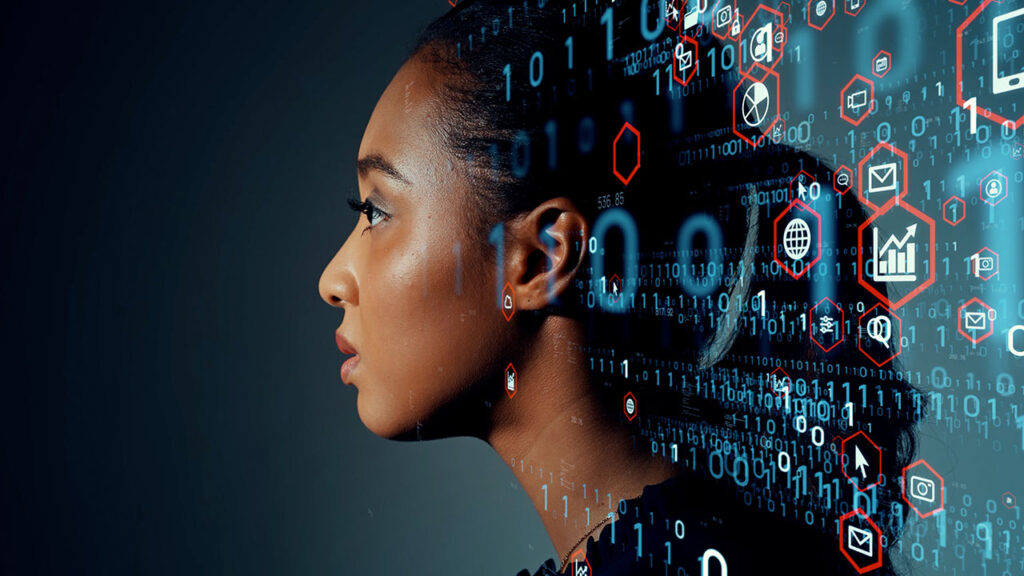Since becoming available to the wider public in 2022, generative artificial intelligence (AI) tools like ChatGPT or Dall-E have been quickly adopted by millions of users, making this evolution in technology a central topic of discussion when it comes to the future of business and society.
For Louis-David Benyayer, Affiliate Professor at ESCP Business School, this moment in history marks the beginning of the generative AI revolution and a major shift for the world of work as we know it.
Affiliate Professorat ESCP Business School
With this shift comes a whole slew of questions: can we predict the changes that will come tomorrow? What should companies expect, but also fear, from the systematic and widespread use of these new types of artificial intelligence? What impact will these tools have on employment? What are the implications for managers?
These are just a few of the topics we covered with Louis-David Benyayer for this Executive Education white paper, ChatGPT and generative artificial intelligence: What upheavals will the managers of the future face? What follows is a summary of this conversation.
AI, not so new, but definitely improved
In simple terms, AI is a set of tools, techniques and software that enable computer programmes to perform tasks formerly entrusted to humans. The technologies–machine learning, supervised learning and neural networks, for example–may differ, but these methods share a common foundation that is rooted in the use of historical data to feed their probabilistic or statistical prediction models.
According to Louis-David Benyayer, what has shifted over time is that :
“Artificial intelligence is no longer based on explicit rules, but on data from which rules are extracted.”
Hence, the idea of inanimate machines learning.
Like AI, generative AI also employs statistical models to “generate” or create new content, be it text, images, sounds or videos. “So today’s AI”, says Louis-David Benyayer, “is both new – in terms of the form taken by the content it produces – and familiar if we look at the tools, methods and techniques used. This explains why some experts, when confronted with the ChatGPT phenomenon, have said that it in no way constitutes scientific progress.” That being said, the democratisation and sheer computing power available today have propelled the transformation of an already existing technology in an impressive way.
When it comes to generative AI, the future is speculative, although changes are already happening
Recent technologies such as NFTs, blockchain and the metaverse were expected to have major impacts on the economy and so far, these predictions have not panned out. Similarly, Generative AI, although record-breaking in its early user numbers, could take off or it could fizzle out like previous so-called technological revolutions.
But, while it’s too early to predict the staying power of the generative AI, Louis-David Benyayer points out that there are already several existing challenges and changes, which include geopolitical issues in the form of infrastructure independence, ecological issues in the form of the environmental impact of the computing centres, and competition issues in the form of an introduction of new models.
Are we seeing the programmed obsolescence of humans or a new era of worker productivity?
Current examples of predictive AI in the workplace already exist for things like automation and the streamlining of processes, such as work shift scheduling at McDonald’s, writing marketing emails, and notifications in the industrial and retail sectors. According to Louis-David Benyayer, this new iteration of AI has companies expecting gains in productivity.
“By automating certain tasks and reducing the risk of error, costs are also reduced. Automation and standardisation can also sometimes lead to an improvement in quality, which has an impact not only on costs but also on revenue,” he says.
Rather than replacing jobs, AI automation will target certain tasks while other tasks, sometimes new ones, born out of the further integration of these tools, will require human skills. “However”, points out Louis-David Benyayer, “experience also shows that this shifts the workload: when we use artificial intelligence to automate everything that is easy to process, human operators are left with all the complicated cases.” The result will be a need for higher-qualified staff. In terms of the kinds of companies that will be affected by the widespread deployment of AI tools in their workflows, it is more a question of when rather than which ones. SMEs with limited resources might be impacted on a later timeline.
Re-discovering the value of human beings in the face of generative AI
Generative artificial intelligence is currently experiencing significant interest and excitement, accompanied by ambitious promises of future revolutions. However, history has taught us that the adoption and impact of new technologies often take longer than expected. Nonetheless, several indicators suggest that this technology will have substantial long-term repercussions on the world of work, as it has already been tried and tested with significant investment from major players in the digital and traditional sectors.
One of the key changes to anticipate is the transformation of professions and processes, rather than a complete replacement of jobs. This raises questions about the uniqueness of human beings and their value in the face of these advancements.
